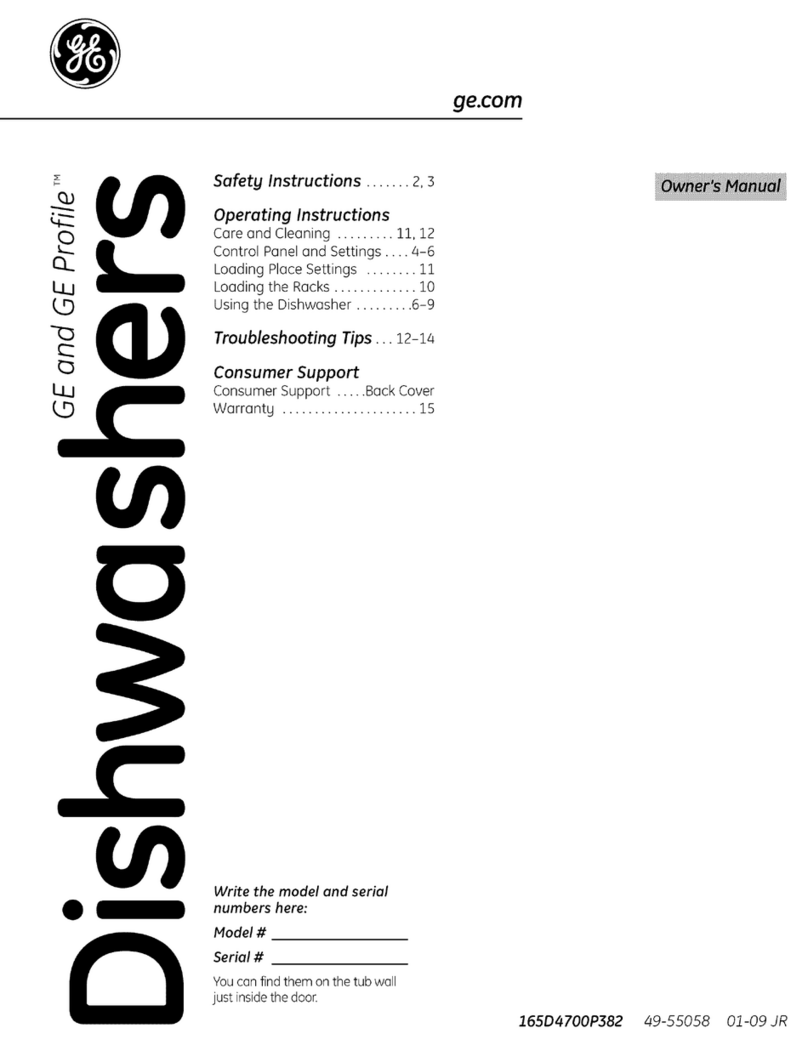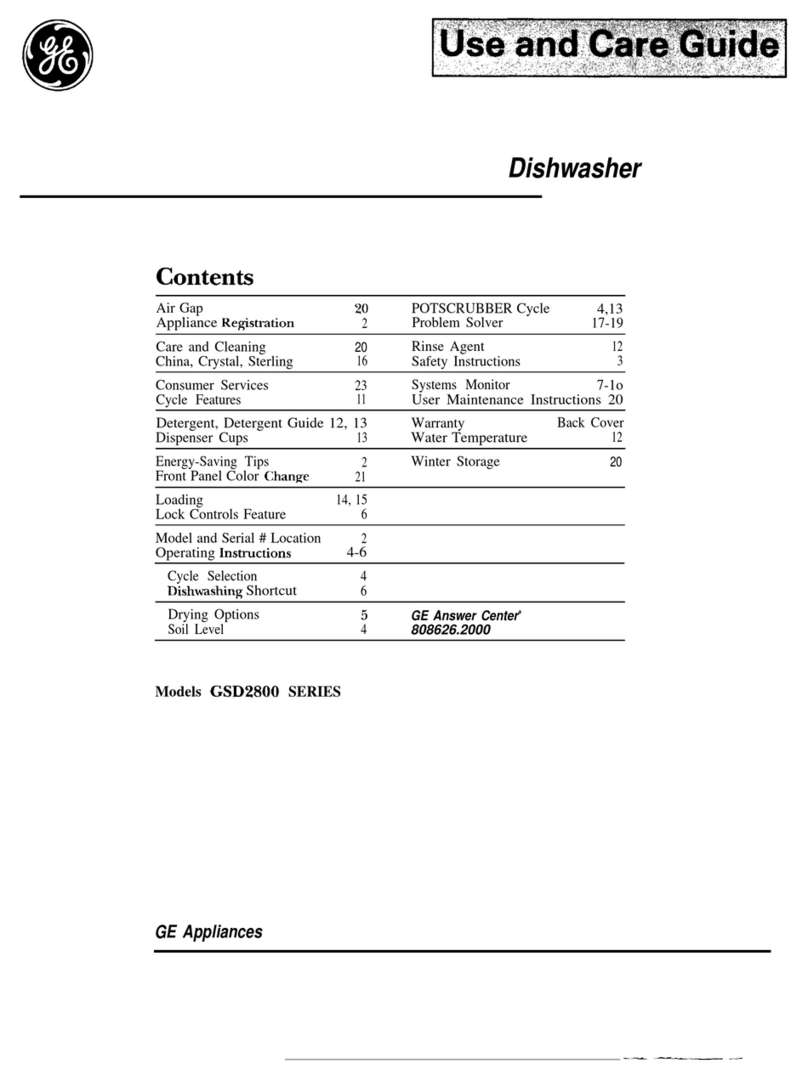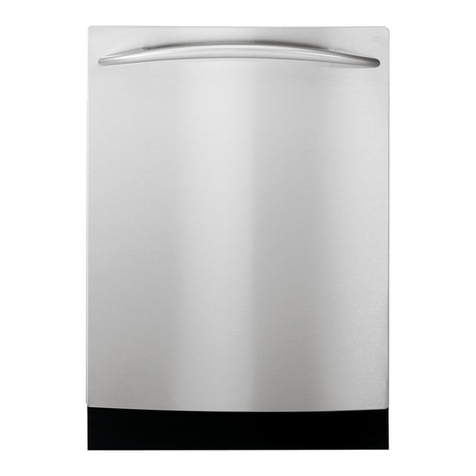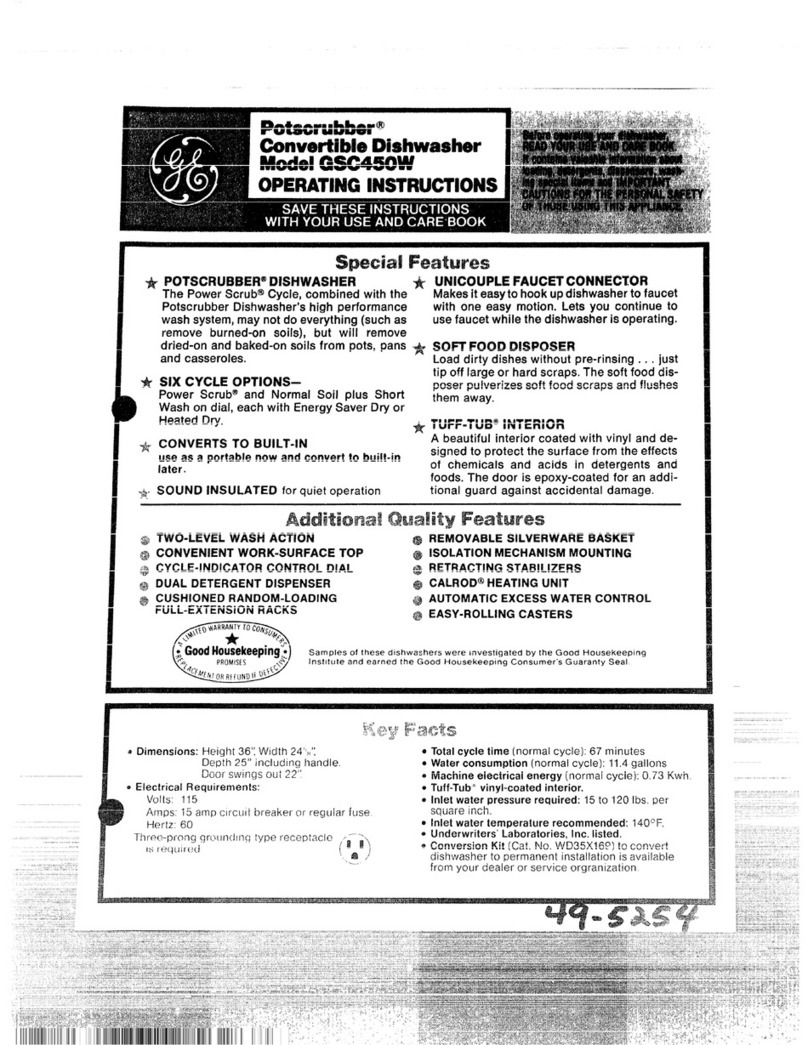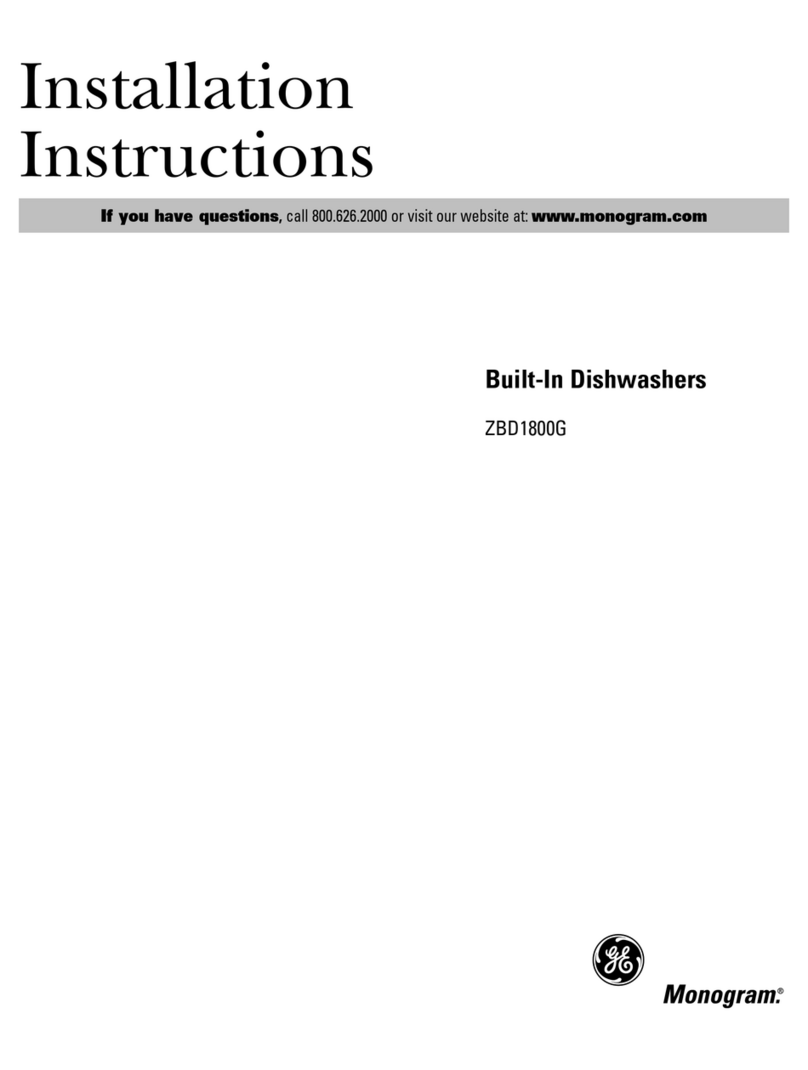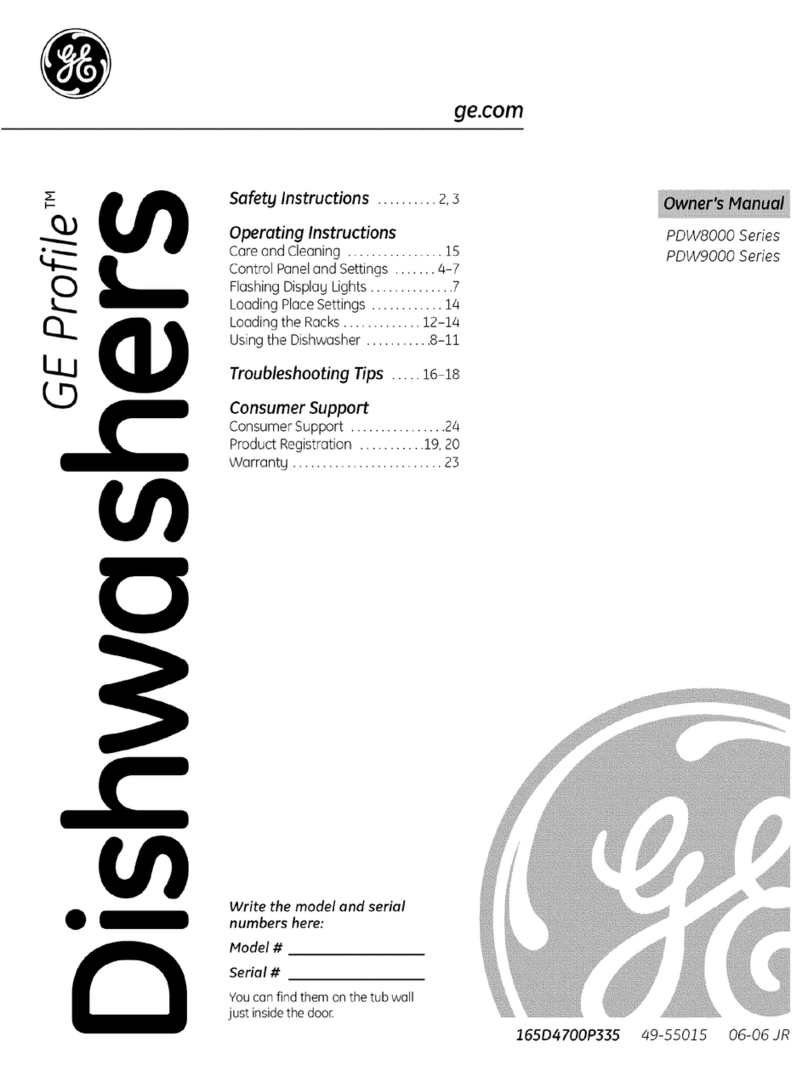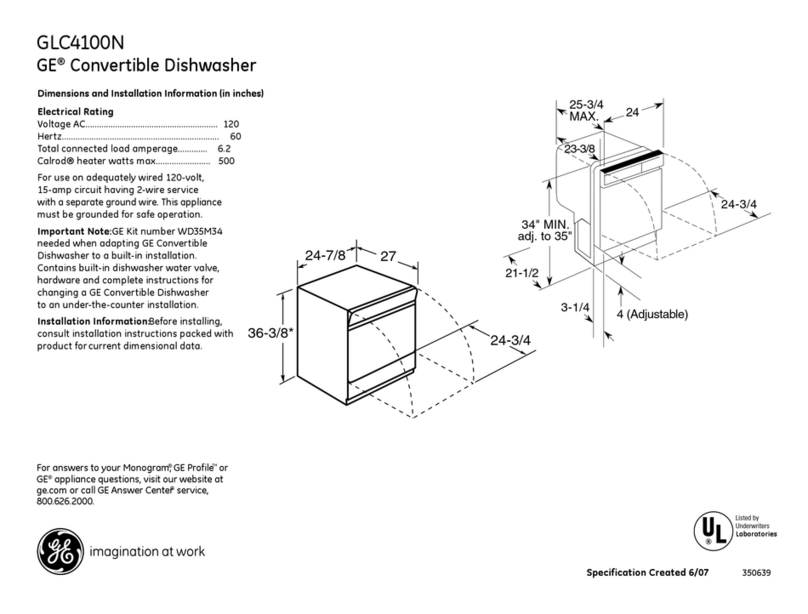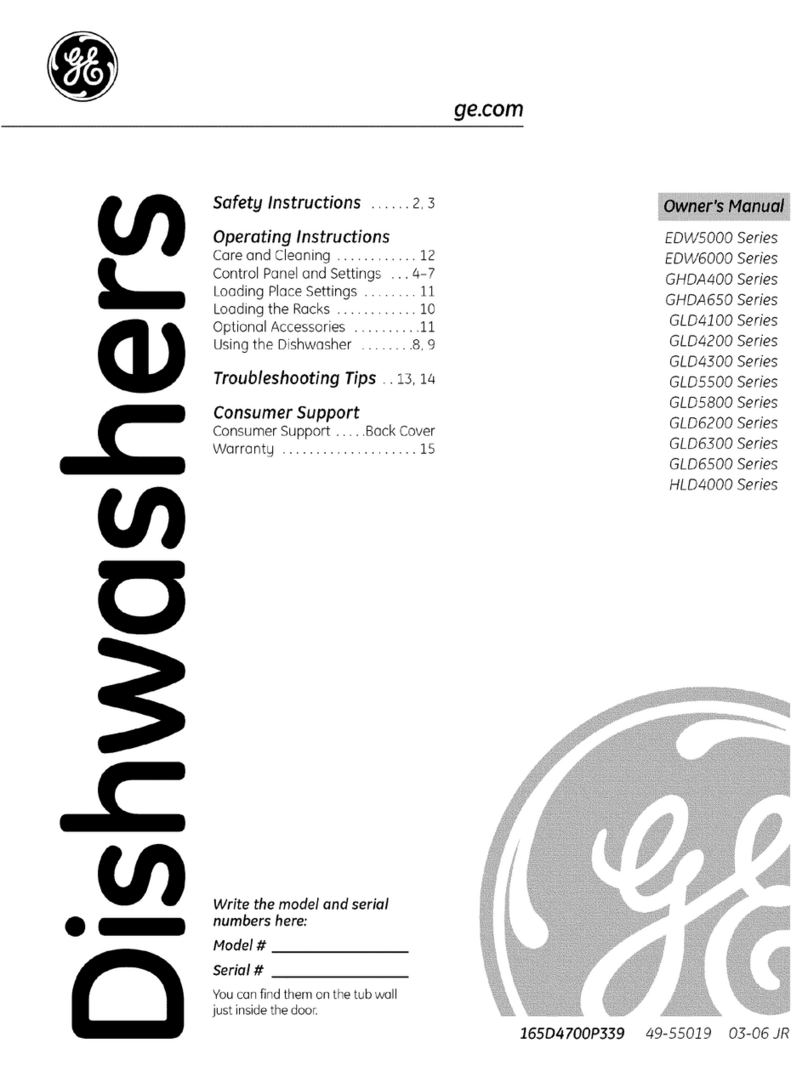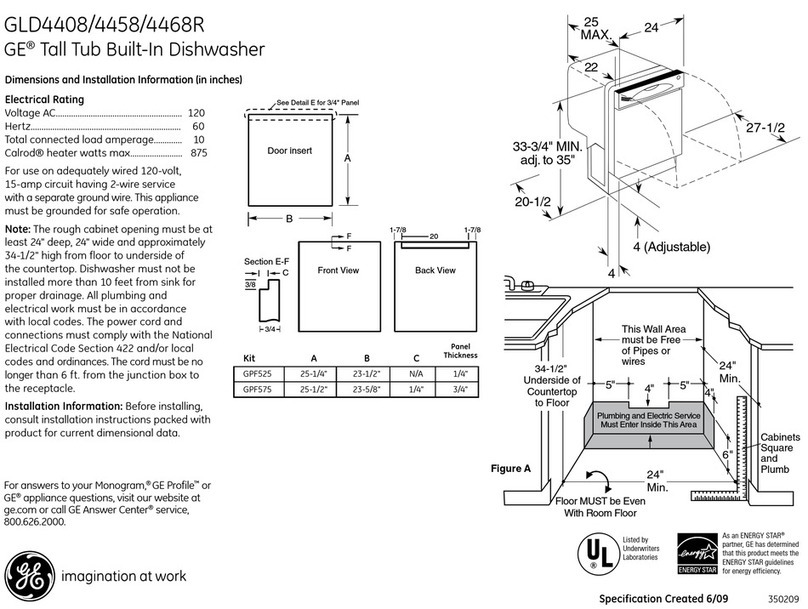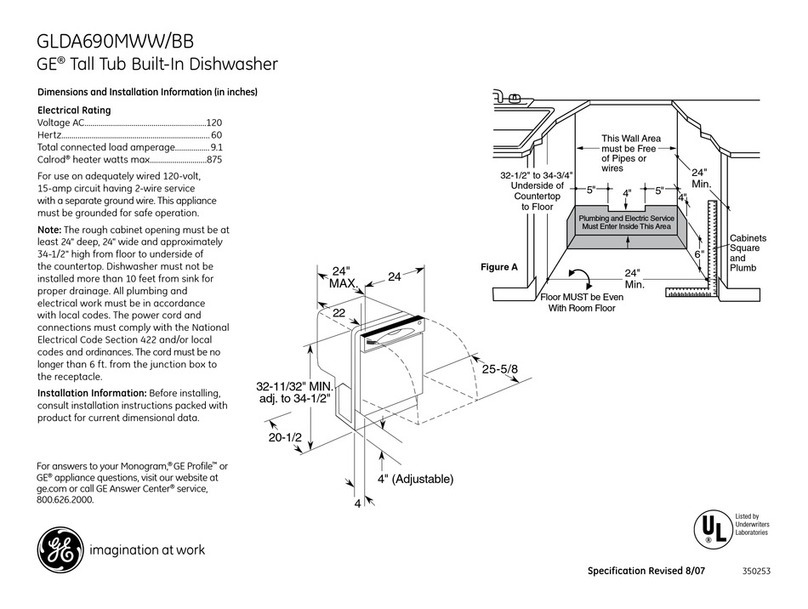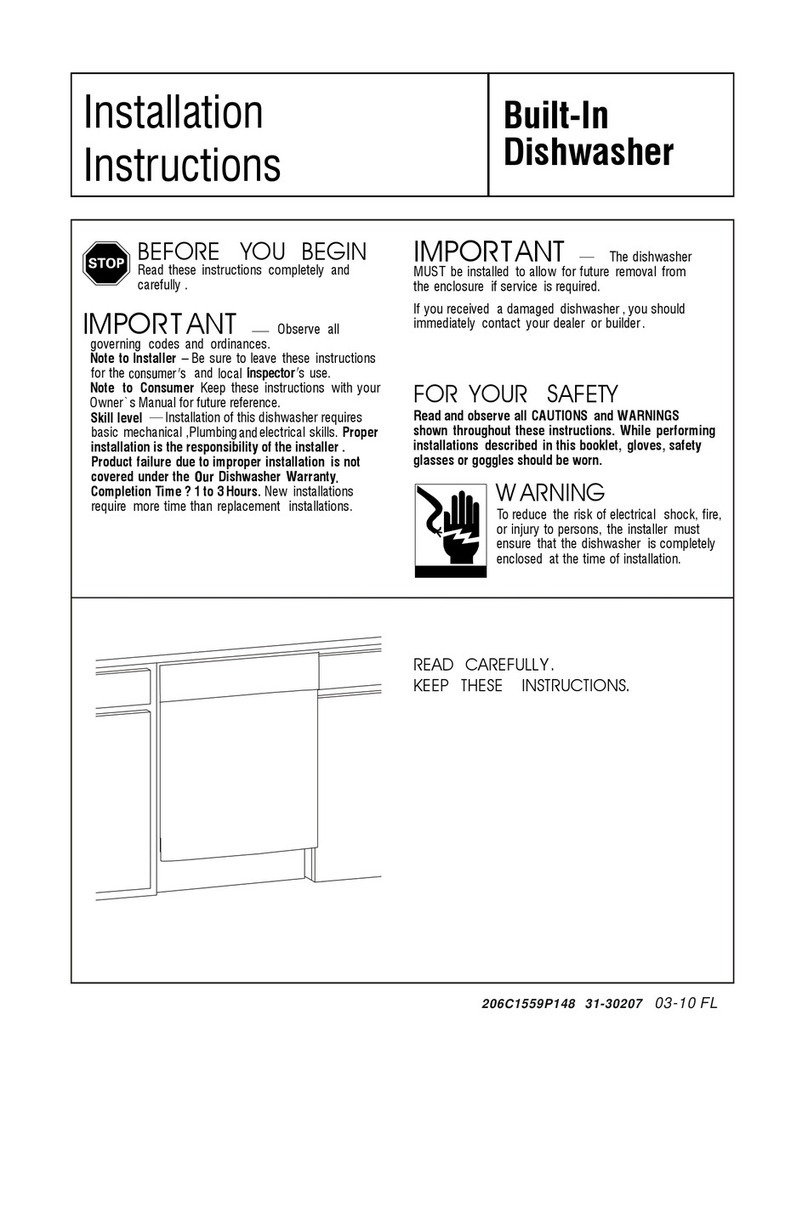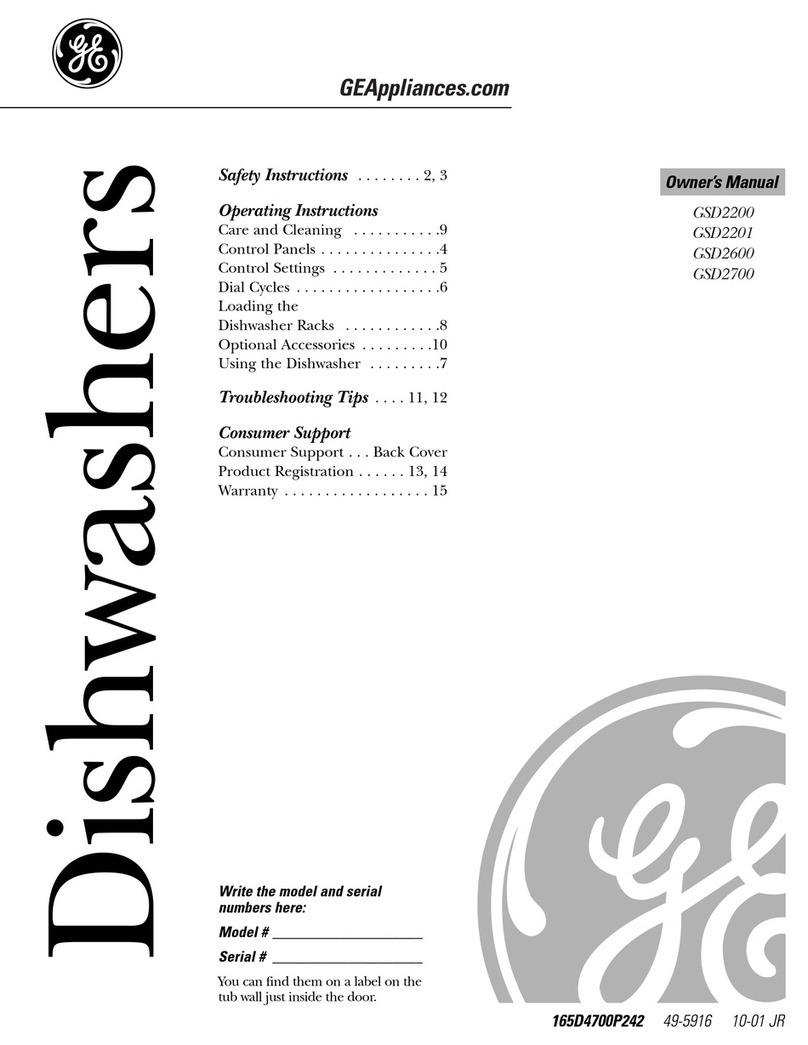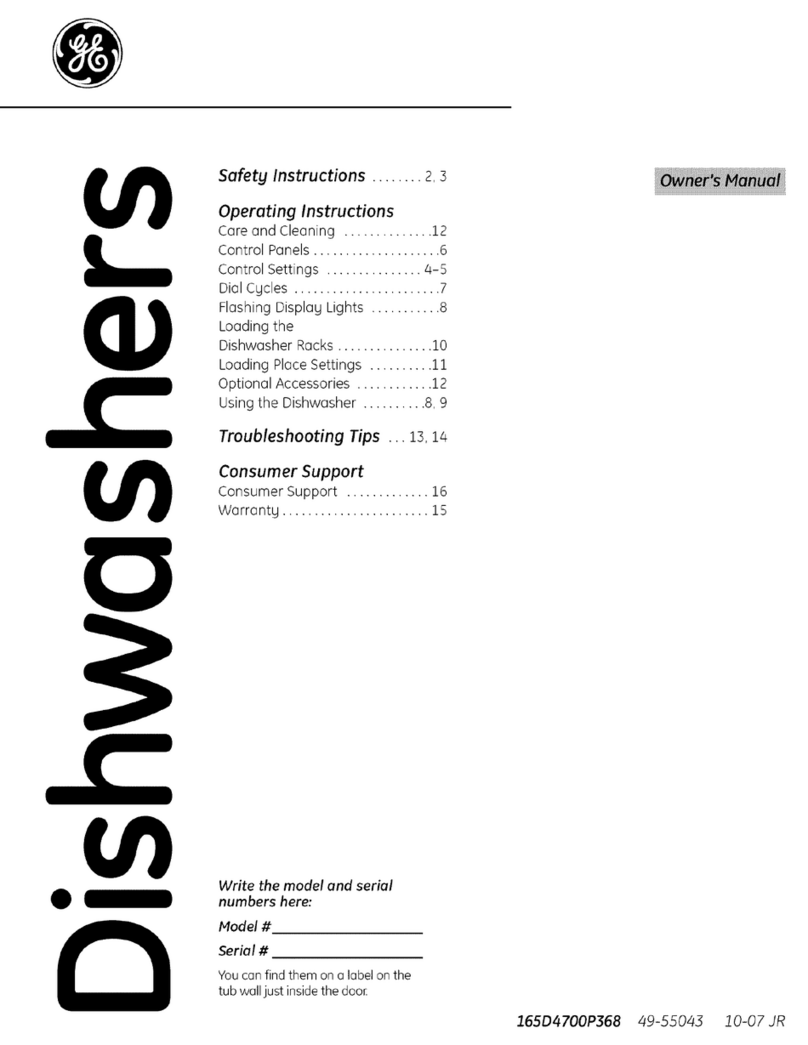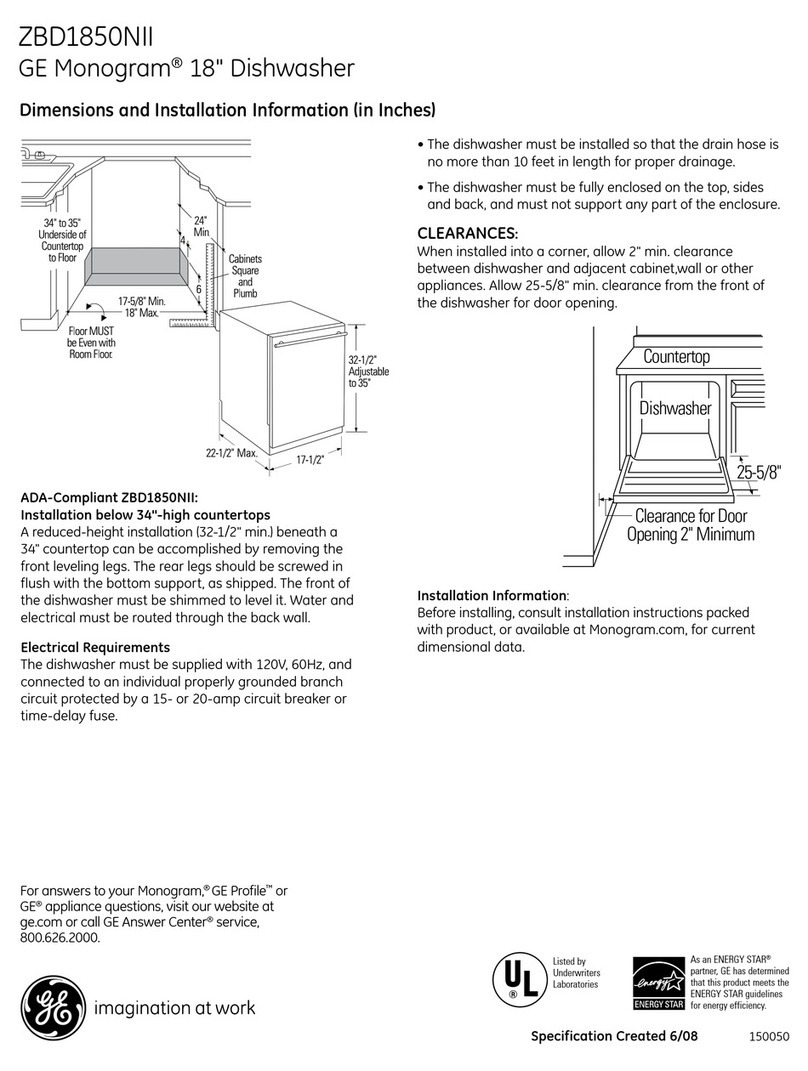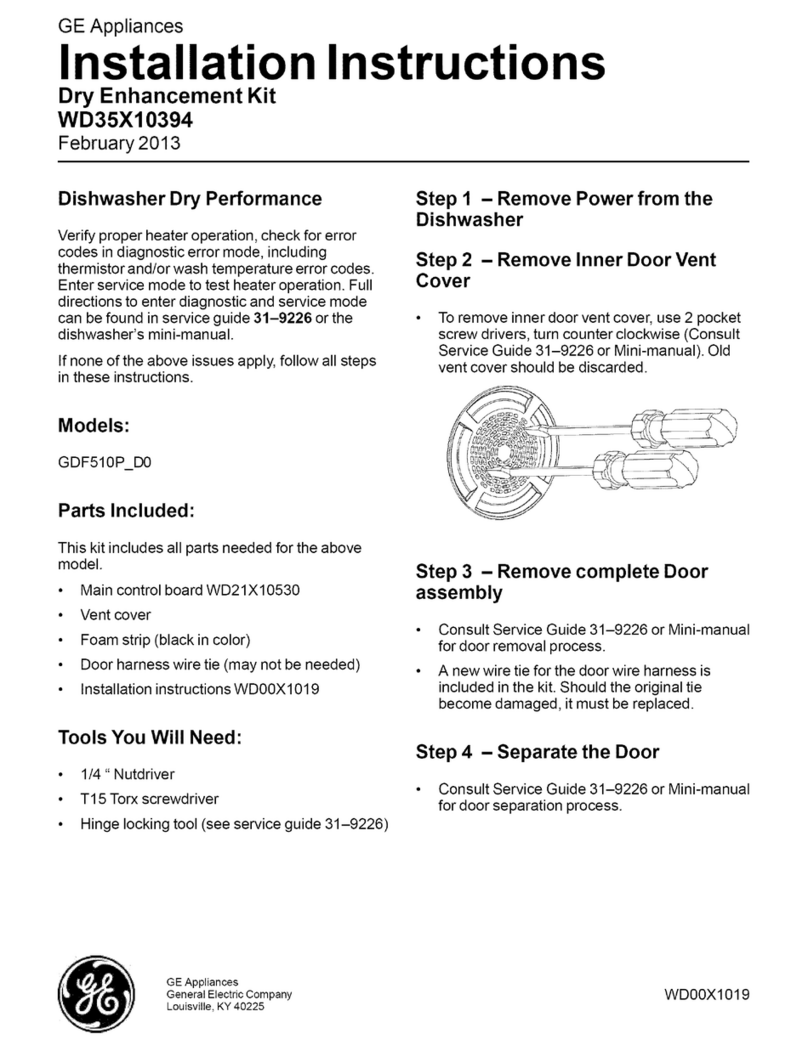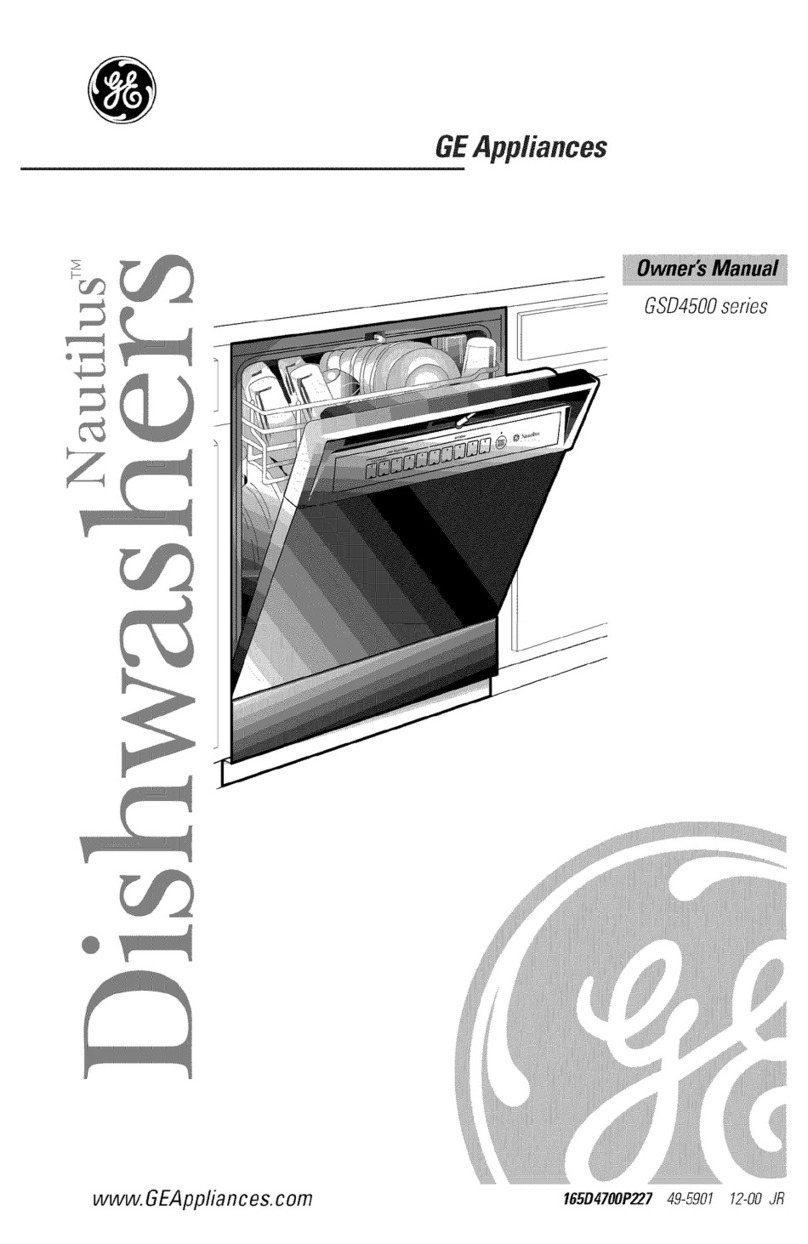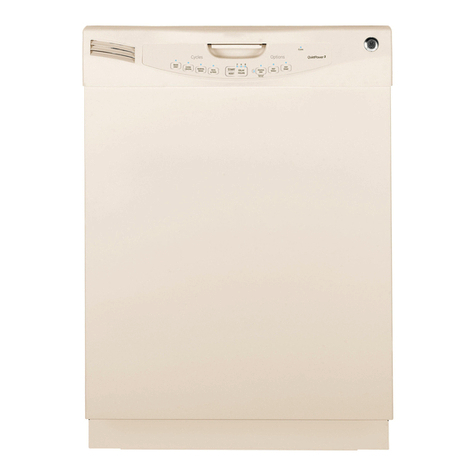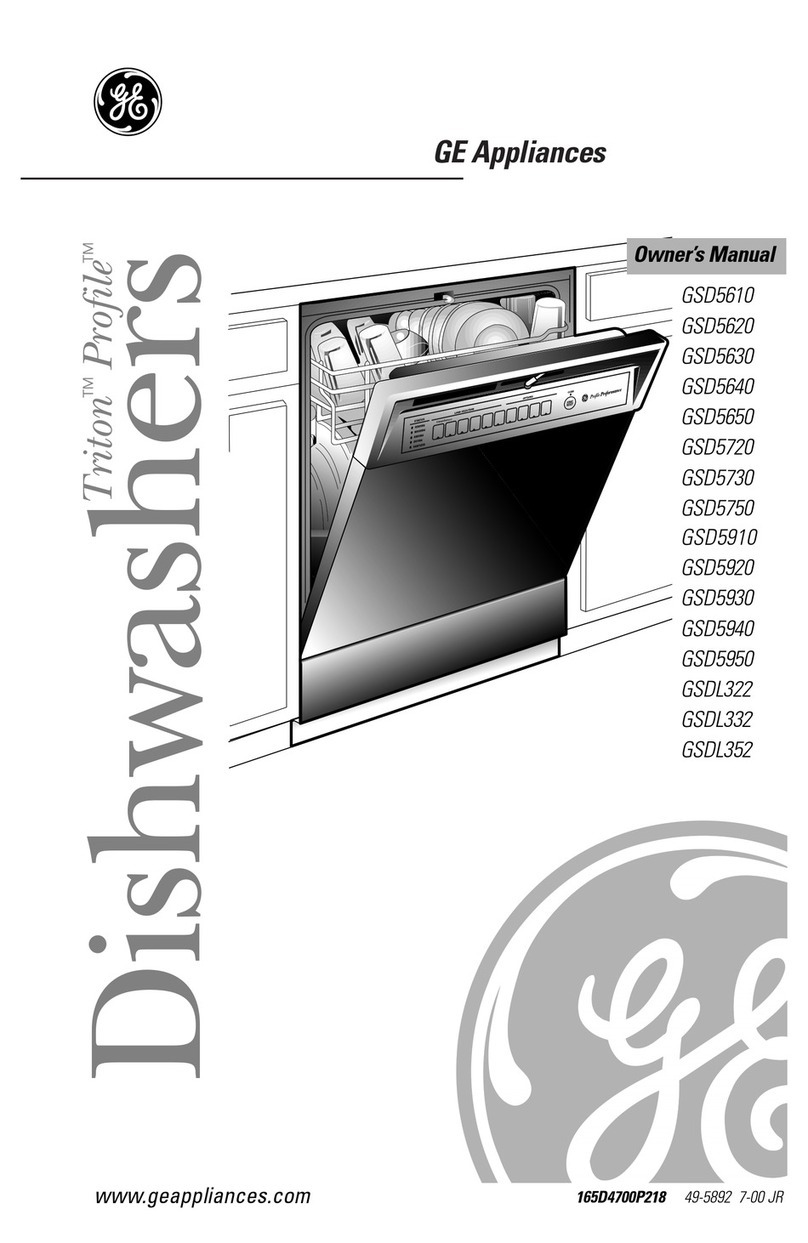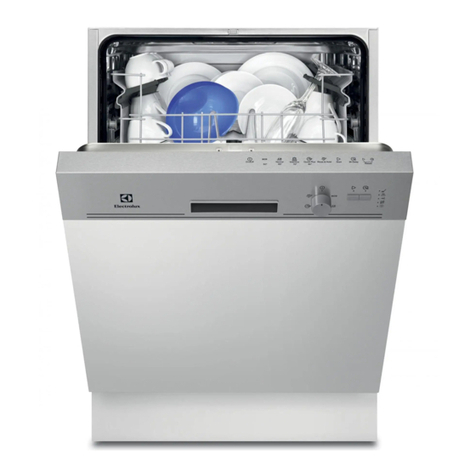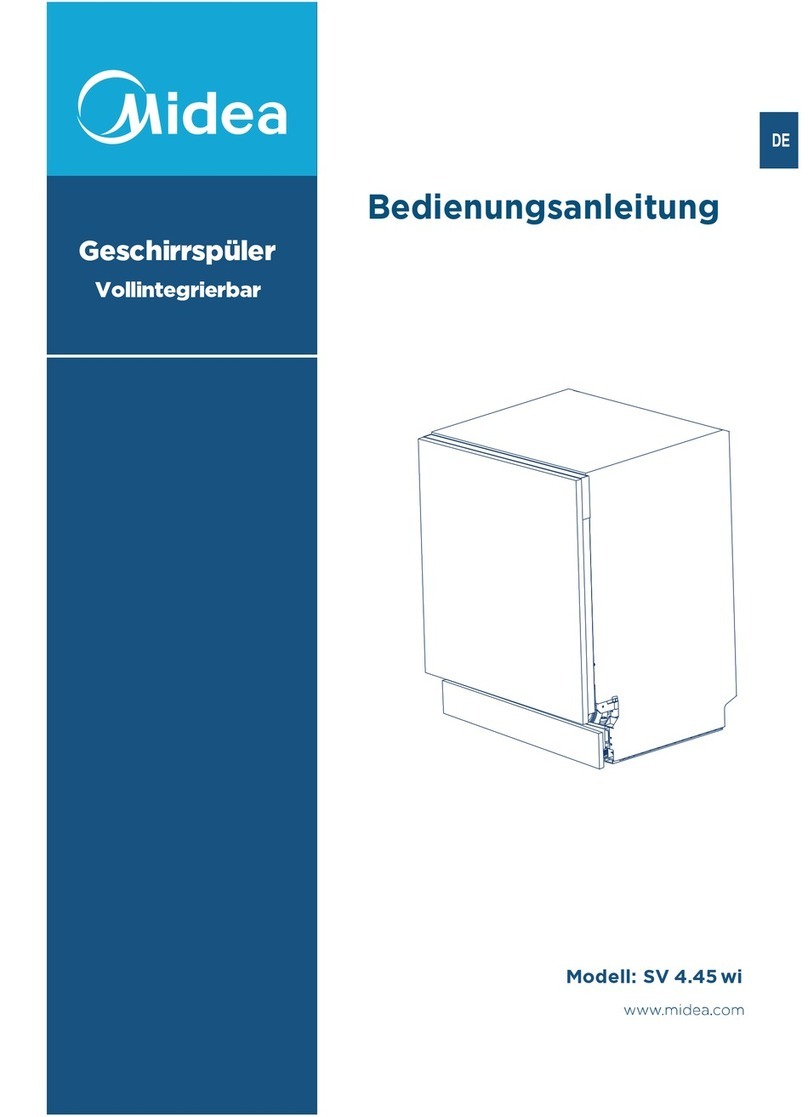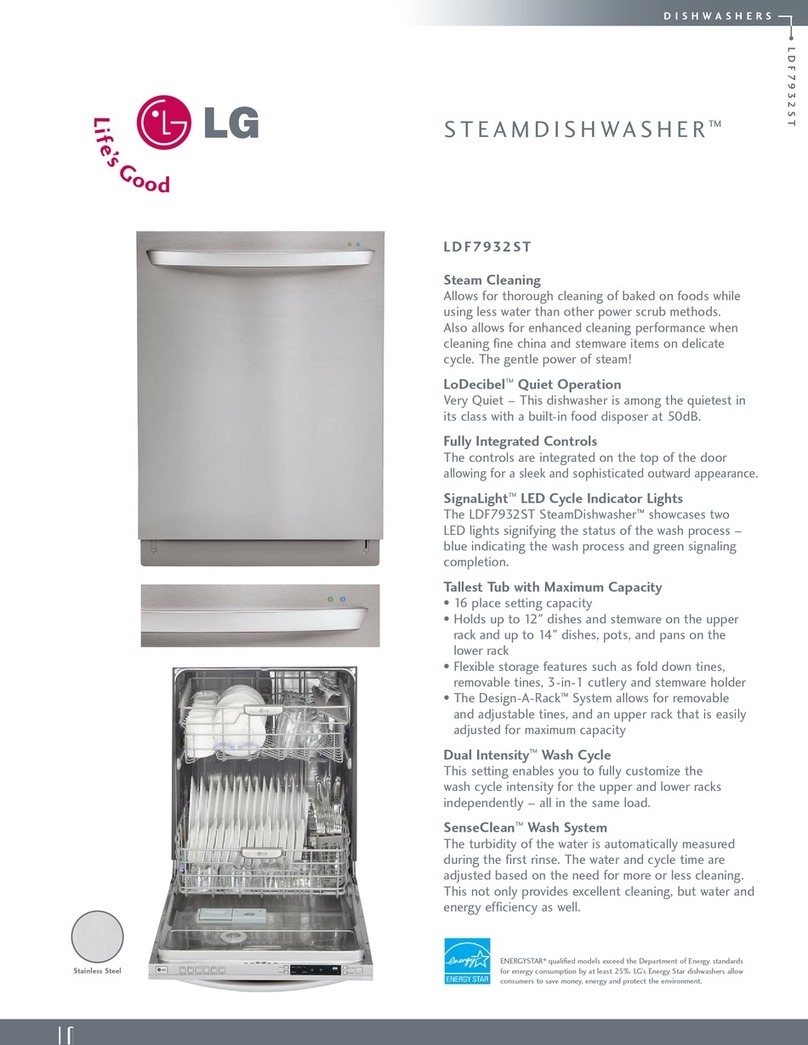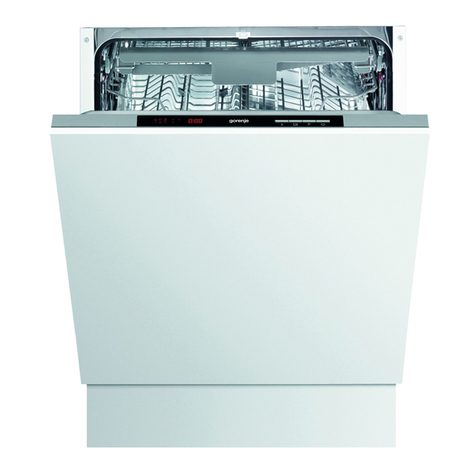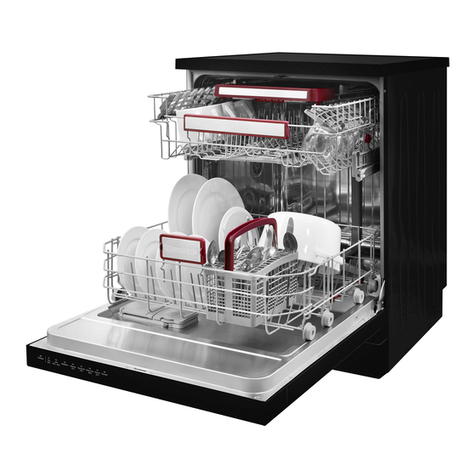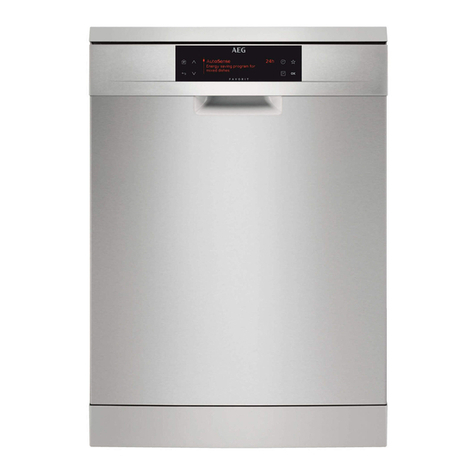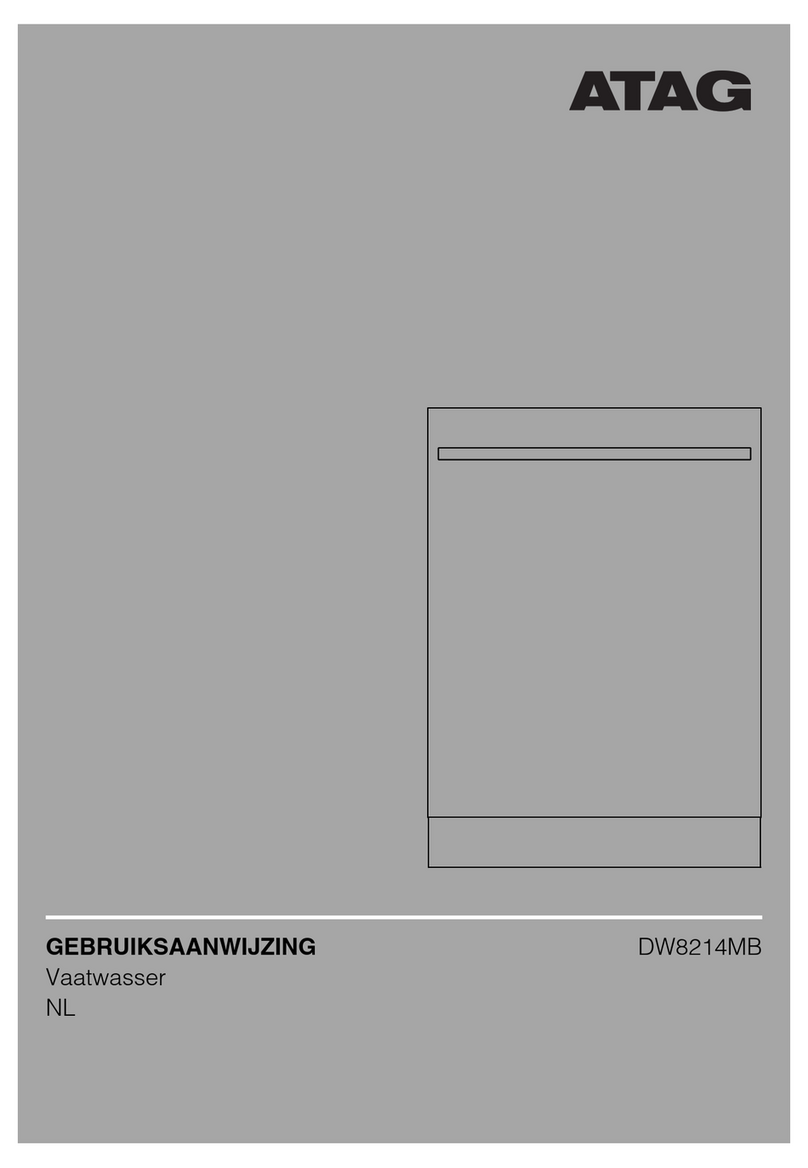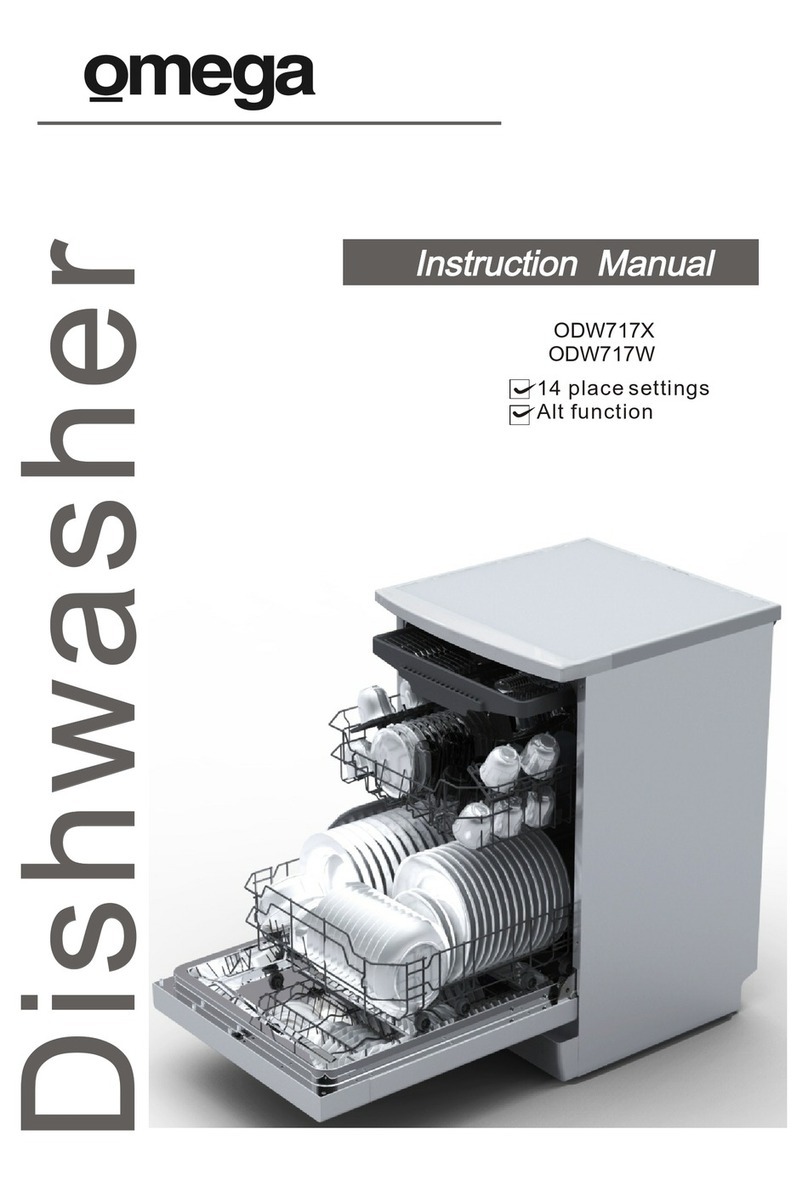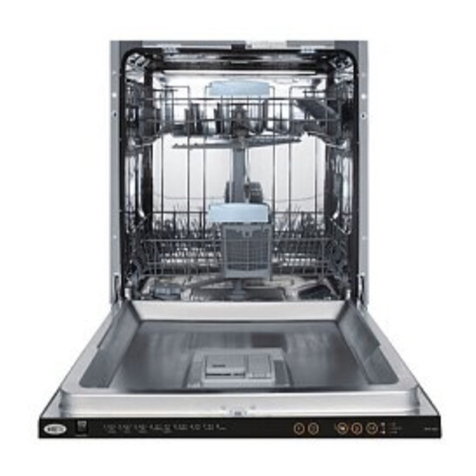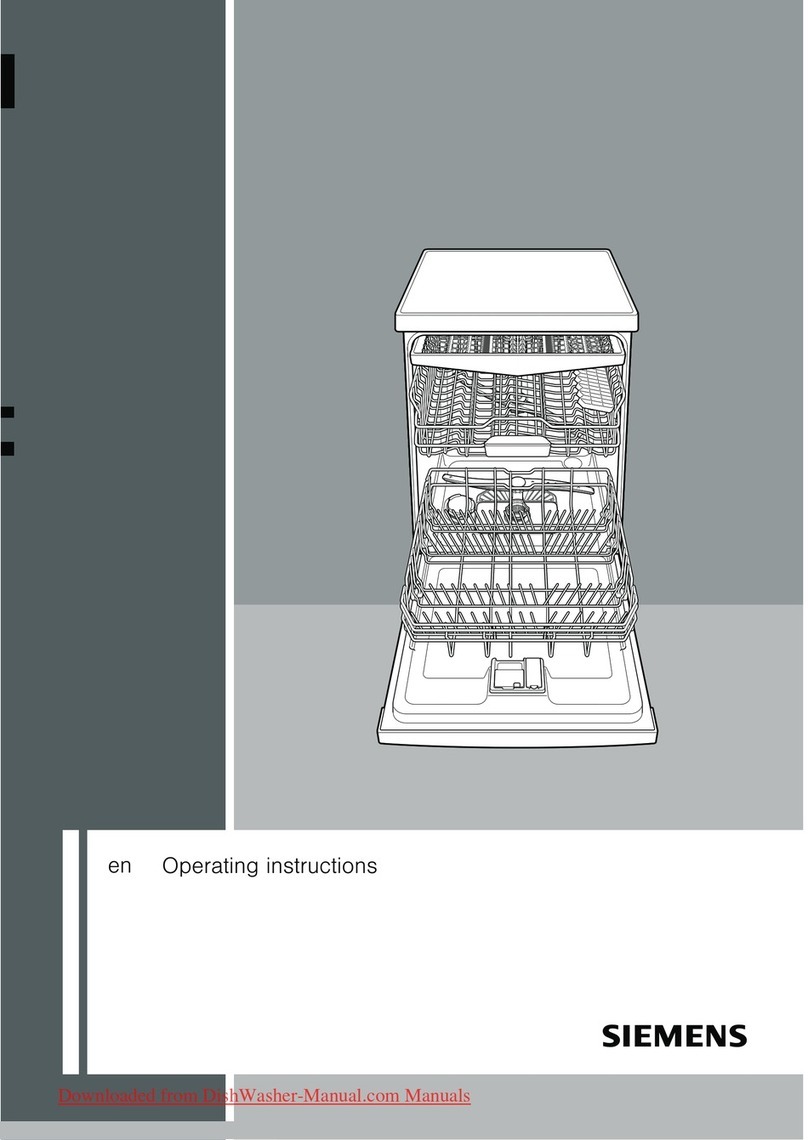Gooddishwashing sm%$
withHOTwater
Togetdishescleananddryyouneed
hotwater.Tohelpyougetwaterof
thepropertemperature,your
dishwasherhasaWASHHEAT
BOOSTfeature.Whenselected(see
page4),thiswaterheatingfeature
allowsyouto turndownyour
householdwaterheaterandsave
energyif you’rewillingtoletthe
dishwasherrunalittlelongerwhileit
heatswater.Forgoodwashingand
drying,theenteringwatermustbe
between120”Fand 140”F.Toprevent
dishdamage,inletwatershouldnot
exceed150°F.
How to test water temperature:
Check the water temperatureinside
your dishwasher with acandy or
meat thermometer.
Let the dishwasher run through one
fill and pump out cycle, then let the
dishwasher fill with water the
second time, approximately 5
minutes after starting the machine.
When you hear the water stop
filling, unlatch the door and slowly
open it.
Measure the temperature of the
water in the bottom of the tub this
way: ..
Remove the silverware basket and
p]ace acandy or meat thermometer
in the water towards the middle of
the tub. If the temperature is less
than 120”F,you will not get good
washing results. Raise your water
heater temperature, wait 30 minutes
and test again. Higher water
temperature is needeclto dissolve
grease and activate powder
detergents. Mthe water temperature
is less than 140°F,usetheWASH
HEAT 1300ST Option (see page 4).
6
IIe@ful hints:If outside
temperaturesare unusuallylow,or
if yourwater travelsalong distance
from water heaterto dishwasher,
you may need to setyour water
heater’sthermostatup. If you have
notused hot waterfor sometime,
the waterin the pipes will becold.
Turn on the hot water faucet at the
sink and allow it to run untilthe
wateris hot. Then start the
dishwasher.If you’verecently done
laundry or run hotwater for
showers,give your water heater
time to recover before operatingthe
dishwasher.
Howtouse aRinseAgent
Arinse agentmakes water flow off
dishesquicker than usual. This
lessens water spottingand makes
drying faster, too.
For best dishwashingperformance,
use of arinse agent such as J13T-
DRY brand is recommended.
Rinse agents come in either liquid
or solid form. Yourdishwasher’s
dispenser uses the liquid form.
How to fill the rinse agent
dispenser. Unscrew the cap. Add
the liquid rinse agentuntil itjust
reaches the bottom of the lip inside
the dispenser opening. Replace the
cap. The dispenser automatically
releases the rinse agent into the
final rinse water.
If you accidentally spih Wipe up
the rinse agent with adamp cloth.
Don’t leave the spill in the
dishwasher. It can keep your
detergent from working.
If you can’t find any rinse agent,
write:
B13NCKISERCONSUMER
PRODUCTS, INC.
(“JET DRY”)
411 W. Putnam Ave.
Greenwich, CT 06830
Your dishwasher’s rinse agent
container holds 4X ounces. This
shou~dlast about 3months. Fill as
needed. Do not overfill.
Howtochine anduse
fik!terfy?nt ---
w:
First,me only powder or Iliquid —
detergentsspecificallymade for
use in dishwashers.Othertypes
will causeoversudsing.
Second,check the phosphate
content.Phosphattihelpsprevent
hard-watermaterialsfromforming
spotsor filmonyourdishes.If your
waterishard (7grainsor more),
yourdetergenthasto workharder.
Detergentswithahigherphosphate
levelwillprobablyworkbetter.If
thephosphatecontentislow (8.770
or less),you’llhaveto useextra
detergentwithhardwater,
Yourwater department can tell
you how hardyour water is. So
canyour countyextensionagent
or your area’swater softener
company.Just call and ask them
how many “grains of hardness”
there are in your water.
How much detergent should you
use? That depend~.Is your water
“hard” or “soft”? With hard water,
you need extra detergentto get
dishes clean. With soft water, you
need less detergent.
Toomuch detergentwith softwater
notonly wastesmoney,itcan be
harmful It can causeapermanent
cloudinessof glassware,called
“etching.” An outsidelayer of glass
is etched away!Of course,thistakes
sometime. Butwhy take achance
when it’seasy to find outthe
hardnessof yourwater.
Keep your detergent fresh and
dry. Under the sink isn’t agood
place to store detergent. Too much
moisture. Don’t put powder
detergent into the dispenser until
you’re ready to wash dishes, either.
(It won’t be fresh OR dry.)
If your powder detergent gets ok!
or hmpy9 throw it away.Rwon’t
wash well, Old detergentoften
won’t dissolve.
If you use aliquiddishwasher
detergent, theseprecautions are not ~~
(
necessary because liquiddetergents -‘“w
don’t %mp” as they age or come ~<z%
in contact with water. @$
v
——.——..— —— ————.———+.

